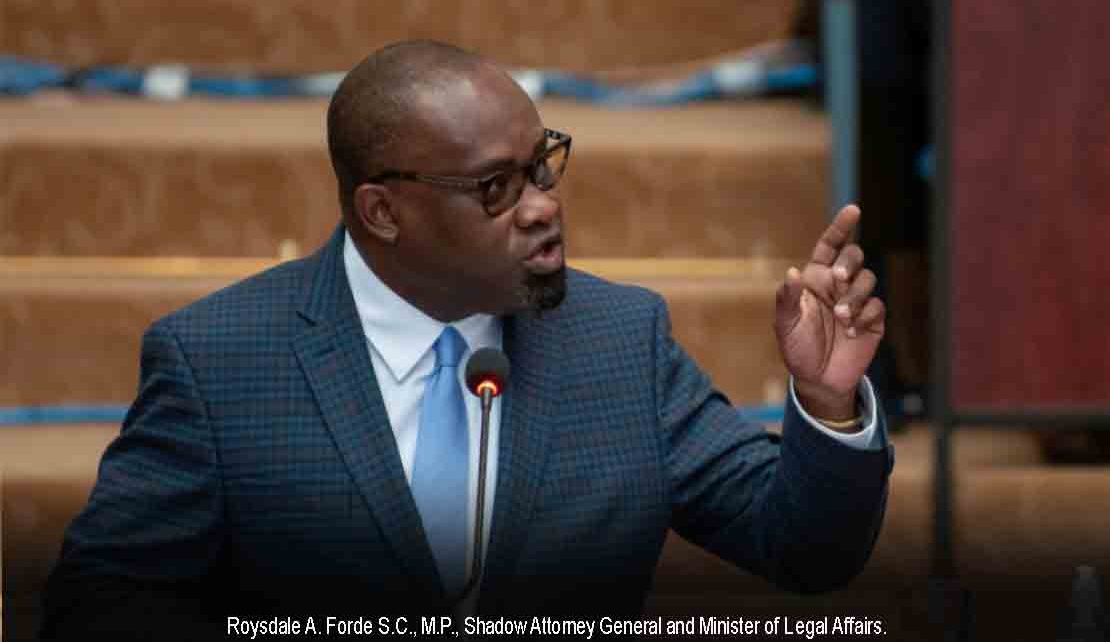GEORGETOWN, Guyana, September 06, 2022 - Opposition Leader Aubrey Norton has filed an action in the Court of Appeal challenging the decision of Acting Chief Justice Roxane George that President Irfaan Ali did not violate the Constitution when he unilaterally appointed Clifton Hicken to act as Commissioner of Police in the absence of consultations.
The appeal filed today by Shadow Attorney General, Senior Counsel Roysdale Forde, asked that with the exception of her findings that the Police Service Commission was not properly constituted, the Appeal allowed, and the decision of the Chief Justice be set aside and reversed.
 Acting Chief Justice Roxane George WiltshireThe document outlining the grounds of appeal maintains that:
Acting Chief Justice Roxane George WiltshireThe document outlining the grounds of appeal maintains that:
- The “Chief Justice misinterpreted, misconstrued, and misapplied the important Constitutional value and objective of Meaningful Consultation in such a manner that the decision of the Learned Chief Justice (ag.) has resulted in a grave miscarriage of justice.”
- The “Chief Justice erred and misdirected herself in law when she found that The President of Guyana engaged in meaningful consultation with the Opposition Leader when appointing the Chairman of the Police Service Commission, and the Chairperson and the members of the Integrity Commission.”
- The Chief Justice erred in law when she held that Minister Teixeira's May 12, 2022, Letter describing the prospective appointees as "people of good standing in our society" and that the applicant may have been familiar with their names amounted to the provision of reasons.”
- The Decision of the Chief Justice is misconceived and erroneous in law and violates the doctrine of separation of powers. In addition, it is unlawful, unconstitutional, and is not supported by established legal principles and doctrines.
- The Chief Justice gave weight to irrelevant factors and erred in law when she found that reasons were in fact given in this case for the appointment of the Chairman of the Police Service Commission and Chairman and members of the Integrity Commission.
- The decision of the Learned Chief Justice found that in the absence of the Chairman of the Public Service Commission, the Police Service Commission was not a properly constituted, Body established by Article 226 the Constitution of the Cooperative Republic of Guyana, yet the allowed the Chairman and members in the absence of the Chairman of the Public Service Commission to usurp, interfere with, compromise, undermine, and assume the functions of the Police Service Commission, in breach of the said constitution.
- The Chief Justice erred in law and made palpable and overriding errors of fact in finding that any decisions taken by the Police Service Commission not properly constituted was protected de facto doctrine in this case.
- The Chief Justice erred in law when rendered a decision which was against the weight of the evidence and public records and or documents of which the Court had judicial notice.
 Following the Chief Justice’s decision, Senior Counsel Forde commented that “It is disappointing that the Court failed to recognise and or consider that state of affairs was created by the unconstitutional removal of the Police Service Commission and the failure by the President to thereafter constitute the said Commission.
Following the Chief Justice’s decision, Senior Counsel Forde commented that “It is disappointing that the Court failed to recognise and or consider that state of affairs was created by the unconstitutional removal of the Police Service Commission and the failure by the President to thereafter constitute the said Commission.
The life of the Police Service Commission expired in August 2021 after the entire Commission had already been suspended by the President. It wasn’t until May 31, 2022 that a new Commission was reconstituted by the President.
“Thus, the Court permitted the President to benefit from his own failure to discharge his Constitutional duty to appoint the Police Service Commission.
It is unfortunate that the decision therefore saw the 30th day of March, 2022 as a static and or singular event and not an ongoing continuum of unconstitutional conduct by the President,” the Senior Counsel lamented.
The Chief Justice went on to rule that “to act and to perform the duties of” are the same, in that, someone has to be appointed to hold the position until a substantive appointment is made in accordance with the Constitution.
However, Senior Counsel Forde maintained that “the Court by this decision has obliterated the material distinction between an acting appointment which can only be made in when there is a Leader of the Opposition and Police Service Commission and an appointment to perform the functions of an office which can be made whether there is a Leader of the Opposition and or Police Service Commission in place or not.
"The Judicial merger of these two distinct types of appointments will cause havoc in our Constitutional system and further weaken rather than strengthen the Constitutional edifice of Guyana," he said.
"The Court proceeded to determine that the President could have acted in the manner he did as he was conferred with authority under Article 111 of the Constitution.



